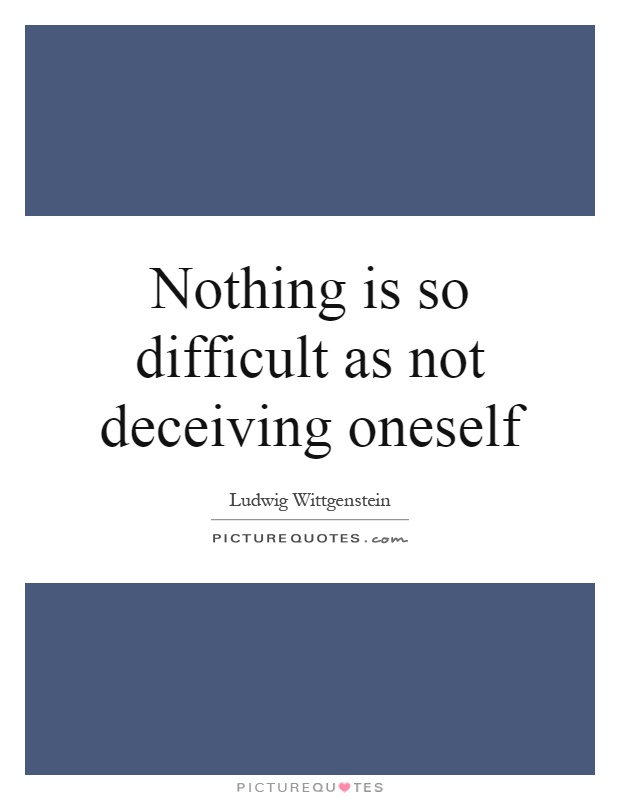Nothing is so difficult as not deceiving oneself

Nothing is so difficult as not deceiving oneself
Ludwig Wittgenstein, the renowned Austrian-British philosopher, is often associated with the quote, "Nothing is so difficult as not deceiving oneself." This statement encapsulates the essence of Wittgenstein's philosophical inquiries into language, logic, and the nature of reality. Wittgenstein's work is characterized by his relentless pursuit of truth and his skepticism towards the limitations of language in accurately representing reality.Wittgenstein believed that language is inherently deceptive, as it can easily lead us astray from the truth. He argued that language is a tool that we use to communicate with others, but it is also a tool that can deceive us into believing false ideas. Wittgenstein was particularly interested in the ways in which language can be used to create illusions and distort our perception of reality.
One of Wittgenstein's most famous works, the Tractatus Logico-Philosophicus, explores the limits of language and the ways in which it can be used to deceive ourselves. In this work, Wittgenstein argues that language is limited in its ability to accurately represent reality, and that we must be vigilant in our efforts to avoid self-deception.
Wittgenstein's later work, Philosophical Investigations, further explores the complexities of language and the ways in which it can be used to deceive ourselves. In this work, Wittgenstein introduces the concept of language games, which are the various ways in which language is used in different contexts. Wittgenstein argues that we must be aware of the ways in which language can be used to deceive us, and that we must constantly question our assumptions and beliefs in order to avoid self-deception.
Overall, Wittgenstein's philosophy is a powerful reminder of the importance of critical thinking and self-reflection in our pursuit of truth. By recognizing the limitations of language and the ways in which it can deceive us, we can strive to overcome our own biases and misconceptions and approach the world with a clearer and more honest perspective. Wittgenstein's insights into the nature of language and self-deception continue to be relevant and thought-provoking for philosophers and thinkers today.












 Friendship Quotes
Friendship Quotes Love Quotes
Love Quotes Life Quotes
Life Quotes Funny Quotes
Funny Quotes Motivational Quotes
Motivational Quotes Inspirational Quotes
Inspirational Quotes